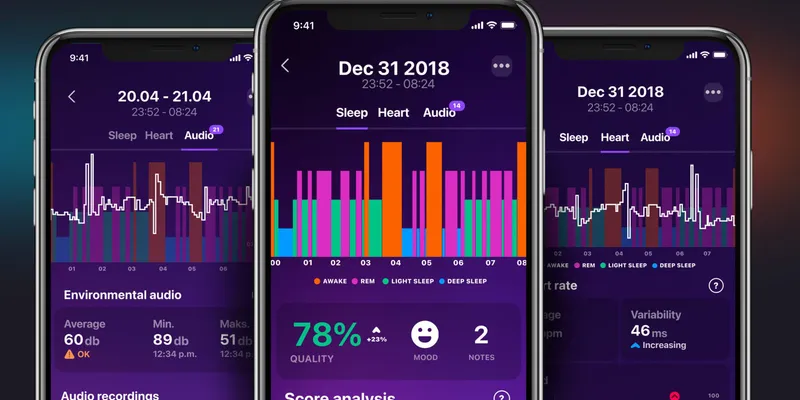Water, the elixir of life, is often taken for granted. We know it's essential for our physical health, but how often do we consider its impact on our mental well-being? Just like a plant wilts without water, our minds can suffer when we're not properly hydrated. In this article, we'll dive into the deep end of the pool to explore how water influences our mental health, from boosting mood to sharpening cognitive function. So grab a glass of H2O and let's get started!
The Foundation: Why Water Matters
Water makes up about 60% of our body weight and is involved in nearly every bodily function. It's like the oil that keeps the engine running smoothly. Without it, things can go awry pretty quickly. From regulating body temperature to aiding digestion and nutrient absorption, water is crucial for maintaining homeostasis.
But beyond these physical roles, water has a profound impact on our brain function and emotional health. Imagine your brain as a sponge; when it's well-hydrated, it’s plump and efficient. When it's parched, it shrinks and struggles to perform even basic tasks.
Hydration and Cognitive Function
Brain Power: Fuelling Your Mental Engine
Our brains are about 75% water. Dehydration can cause brain cells to shrink slightly, which can affect cognitive functions such as concentration, alertness, and short-term memory. Think of your brain as a high-performance sports car; without enough fuel (water), it can't operate at its best.
Studies have shown that even mild dehydration can impair cognitive performance in tasks requiring attention, psychomotor skills, and immediate memory skills. So if you find yourself struggling to focus or remember where you left your keys, it might be time to drink up!
The Science Behind It
When we're dehydrated, our bodies produce higher levels of cortisol—the stress hormone. Elevated cortisol levels can lead to feelings of anxiety and stress. Conversely, staying hydrated helps keep cortisol levels in check, promoting a calmer state of mind.
Mood Swings: The Emotional Rollercoaster
Hydration's Role in Emotional Stability
Ever felt inexplicably irritable or anxious? It might not be just life's stresses getting you down; dehydration could be playing a sneaky role too. Water helps maintain the balance of neurotransmitters in the brain—chemicals responsible for mood regulation.
When you're dehydrated, this delicate balance can be disrupted, leading to mood swings or feelings of depression and anxiety. Drinking enough water ensures that these neurotransmitters are functioning optimally.
A Simple Solution for Complex Emotions
Incorporating more water into your daily routine is one of the simplest ways to improve your emotional well-being. It's like adding oil to a squeaky hinge; everything just runs smoother when you're properly hydrated.
Sleep Quality: A Restful Night's Secret Ingredient
The Connection Between Hydration and Sleep
Quality sleep is essential for mental health—it's when our brains process emotions and memories from the day. But did you know that hydration plays a crucial role in how well we sleep? Dehydration can lead to dry mouth and nasal passages, causing snoring or even sleep apnea.
Moreover, being dehydrated before bed can lead to nocturnal leg cramps or an increased heart rate—both of which can disrupt your slumber.
Tips for Better Sleep Through Hydration
To optimise your hydration for better sleep:
- Drink consistently throughout the day: Don't try to chug all your water right before bed.
- Limit caffeine: Caffeinated beverages can dehydrate you.
- Monitor alcohol intake: Alcoholic drinks are diuretics and can contribute to dehydration.
Anxiety Relief: Calming Waters
How Water Can Soothe Anxiety
Water has natural calming properties—just think about how relaxing it feels to sit by a lake or listen to ocean waves crashing against the shore. Drinking water can have a similar effect on your mind by helping regulate cortisol levels.
Moreover, staying hydrated ensures that your body's systems are functioning efficiently, reducing physical stressors that could contribute to anxiety.
Practical Tips for Using Water as an Anxiety Tool
- Carry a reusable water bottle: Having easy access makes it more likely you'll drink throughout the day.
- Set reminders: Use apps or alarms if you often forget to hydrate.
- Incorporate hydrating foods: Fruits like watermelon or cucumbers have high water content.
Depression: Lifting the Fog with Hydration
The Link Between Dehydration and Depression
While depression is complex with many contributing factors—including genetics and environment—dehydration can exacerbate symptoms. When we're dehydrated, our bodies struggle to produce energy efficiently; this lack of energy can manifest as fatigue—a common symptom of depression.
Additionally, dehydration affects serotonin production—a neurotransmitter linked with mood regulation—which could potentially worsen depressive symptoms.
Steps Toward Better Mental Health Through Hydration
While drinking more water won't cure depression alone (always seek professional help), it’s an easy step toward feeling better:
- Start small: Gradually increase your daily intake.
- Track progress: Use apps or journals.
- Combine with other healthy habits: Like balanced nutrition and regular exercise.
Social Interactions: Being Present in Conversations
Staying Sharp in Social Settings
Ever found yourself zoning out during conversations? Dehydration might be partly responsible! When we're not adequately hydrated our cognitive functions—including social cognition—can take a hit making us less engaged listeners or conversationalists
Staying hydrated helps keep us mentally sharp allowing us fully participate social interactions whether they’re casual chats friends important meetings work
Enhancing Social Experiences Through Hydration
To make most social interactions:
- Drink glass before heading out
- Opt non-alcoholic beverages gatherings
- Encourage group hydration challenges friends family
Productivity Boosts : Getting More Done Day
How Hydration Impacts Work Performance
Whether working office home staying productive key achieving goals And guess what? Proper hydration plays significant role productivity too! Studies show workers who stay hydrated tend perform better tasks requiring focus problem-solving creativity
Think hydration secret weapon workplace success keeping glass desk taking regular sips throughout day ensure mind stays clear focused ready tackle whatever comes way
Practical Tips Staying Hydrated Work
Here some practical tips staying hydrated work:
- Keep large bottle desk
- Set hourly reminders drink
- Choose hydrating snacks fruits veggies over salty processed options
Exercise Recovery : Replenishing Mind Body
Importance Post-exercise Hydration
After good workout body needs replenish lost fluids maintain optimal function This especially true mental recovery exercise increases production endorphins feel-good hormones also leads fluid loss through sweat
Rehydrating post-exercise helps restore balance ensuring both mind body recover effectively ready next session
Best Practices Post-exercise Rehydration
Here some best practices post-exercise rehydration:
- Drink within 30 minutes finishing workout
- Opt electrolyte-rich drinks intense sessions
- Combine rehydration balanced meal support overall recovery
Potential Downsides Over-hydration : Striking Balance
Risks Drinking Too Much Water
While staying hydrated crucial overdoing also pose risks Over-hydration dilutes sodium levels blood leading condition called hyponatremia Symptoms include nausea headache confusion severe cases seizures coma
Striking balance key ensuring drink enough without going overboard listening body cues monitoring intake important maintaining optimal health
Finding Your Ideal Intake
Finding ideal daily intake varies based factors including age weight activity level climate general guideline aim around eight 8-ounce glasses day However individual needs differ consulting healthcare provider personalised recommendations always good idea
Key Takeaways
Water truly elixir life impacting every aspect health including mental well-being From boosting cognitive function stabilising mood improving sleep quality aiding exercise recovery proper hydration essential maintaining optimal mental physical health
Remember striking balance key listening body cues incorporating hydrating habits daily routine simple yet effective way support overall wellness So next time reach glass remember doing favour both mind body Cheers!













